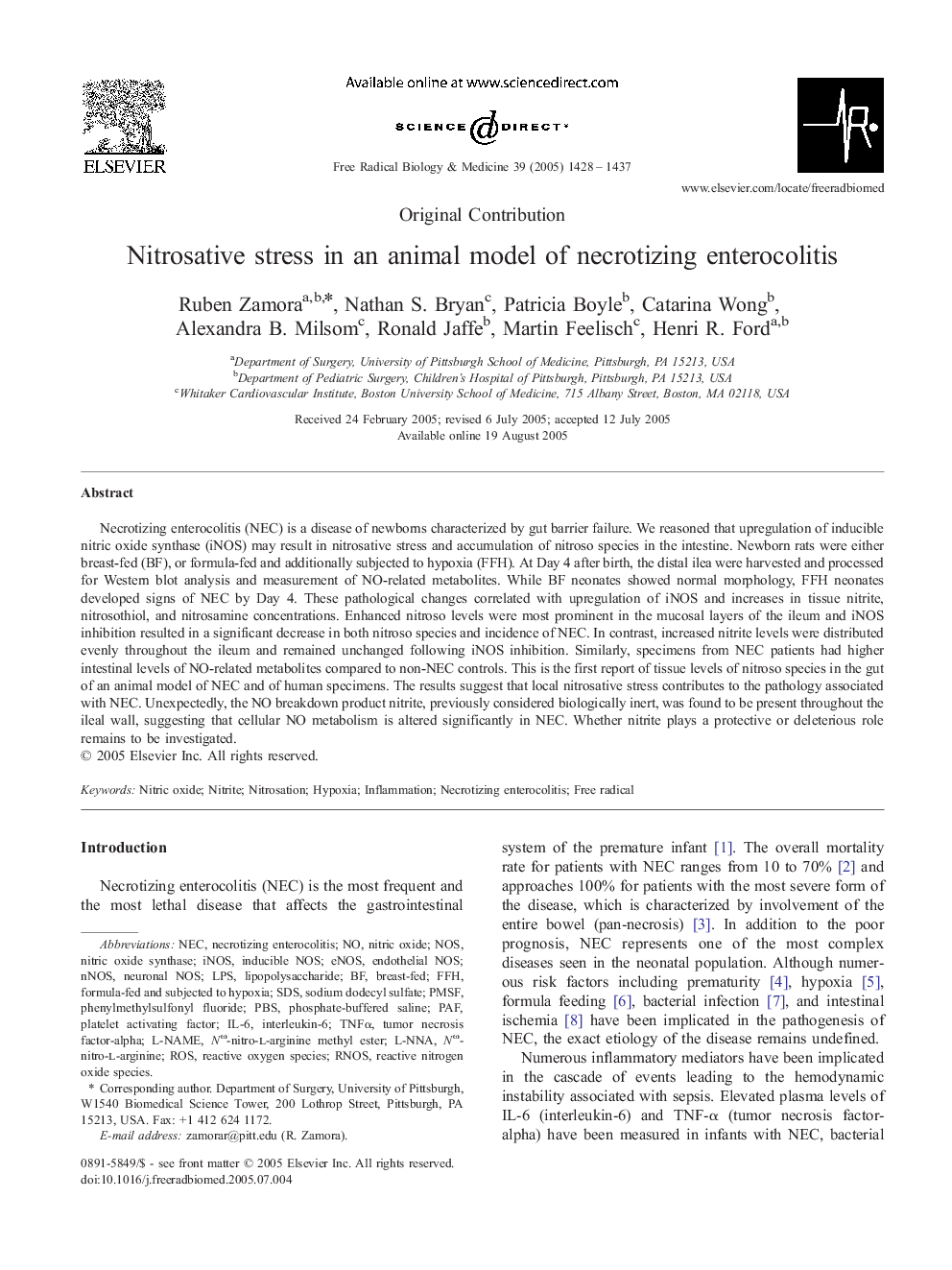| Article ID | Journal | Published Year | Pages | File Type |
|---|---|---|---|---|
| 10738836 | Free Radical Biology and Medicine | 2005 | 10 Pages |
Abstract
Necrotizing enterocolitis (NEC) is a disease of newborns characterized by gut barrier failure. We reasoned that upregulation of inducible nitric oxide synthase (iNOS) may result in nitrosative stress and accumulation of nitroso species in the intestine. Newborn rats were either breast-fed (BF), or formula-fed and additionally subjected to hypoxia (FFH). At Day 4 after birth, the distal ilea were harvested and processed for Western blot analysis and measurement of NO-related metabolites. While BF neonates showed normal morphology, FFH neonates developed signs of NEC by Day 4. These pathological changes correlated with upregulation of iNOS and increases in tissue nitrite, nitrosothiol, and nitrosamine concentrations. Enhanced nitroso levels were most prominent in the mucosal layers of the ileum and iNOS inhibition resulted in a significant decrease in both nitroso species and incidence of NEC. In contrast, increased nitrite levels were distributed evenly throughout the ileum and remained unchanged following iNOS inhibition. Similarly, specimens from NEC patients had higher intestinal levels of NO-related metabolites compared to non-NEC controls. This is the first report of tissue levels of nitroso species in the gut of an animal model of NEC and of human specimens. The results suggest that local nitrosative stress contributes to the pathology associated with NEC. Unexpectedly, the NO breakdown product nitrite, previously considered biologically inert, was found to be present throughout the ileal wall, suggesting that cellular NO metabolism is altered significantly in NEC. Whether nitrite plays a protective or deleterious role remains to be investigated.
Keywords
iNOSPBSTNFαLPSIL-6nNOSRNOSSDSNOSL-NNANECPMSFeNOSFfhl-NAMENω-nitro-l-arginineNω-nitro-l-arginine methyl esterneuronal NOSinducible NOSROSinflammationNecrotizing enterocolitisendothelial NOSinterleukin-6Breast-fedtumor necrosis factor-alphaFree radicalsodium dodecyl sulfatePlatelet activating factorphenylmethylsulfonyl fluoridelipopolysaccharidePhosphate-buffered salineNitrosationNitriteNitric oxidenitric oxide synthasePAFHypoxiaReactive nitrogen oxide speciesReactive oxygen species
Related Topics
Life Sciences
Biochemistry, Genetics and Molecular Biology
Ageing
Authors
Ruben Zamora, Nathan S. Bryan, Patricia Boyle, Catarina Wong, Alexandra B. Milsom, Ronald Jaffe, Martin Feelisch, Henri R. Ford,
